
4th Edition | Online Course: GIS Programming for Exposure Assessment in Environmental Health Research.
This course is designed to teach the essential GIS (Geographic Information Systems) tools needed to process and analyse data efficiently and reproducibly, following the highest research standards. You will learn to master the free and open-source software: <strong>QGIS, R, and Python</strong>. While the course focuses on public and environmental health research, its content is fully applicable to any discipline that works with spatial data (e.g., geography, biology, sociology, etc.). This is a demanding and practical training program, <strong>with continuous support provided</strong> to help you with any questions. <u>Key Course Details</u>: · Format: Online, with live classes that are recorded and made available on our virtual campus for you to watch at your convenience. · Start Date: Wednesday, October 1st. · Duration: 6 weeks. · Live Sessions: Wednesdays, 9:00 AM - 1:30 PM [CET/CEST]. · Flexibility: Access to the recordings allows you to follow the course at your own pace, with no need to attend the live sessions.

Incorporation of a new flow cytometer into the IDIBELL Flow Cytometry Facility
We are pleased to announce the recent addition of the Beckman Coulter CytoFLEX LX Analyzer to our Flow Cytometry Facility, part of the IDIBELL Scientific and Technical Platforms. This state-of-the-art instrument expands and strengthens our cell analysis services, providing researchers with access to the most advanced technologies in flow cytometry. It is especially notable for its outstanding expansion capabilities, ensuring optimal adaptability to the evolving needs of biomedical research. The system features an optical configuration with 4 lasers and 16 detectors, as follows: Blue 488 nm (3) | Yellow-Green 561 nm (5) | Violet 405 nm (5) | Red 638 nm (3) It also includes an automated 96-well plate reader, compatible with both standard and deep-well plates, facilitating high-throughput analysis. Another key feature is the high-precision peristaltic pump in the sample acquisition system, enabling direct absolute cell counting without the need for reference beads. With this new addition, we reaffirm our commitment to providing research groups with high-level infrastructure and cutting-edge technologies.
IDIBELL - Flow cytometry platform
14/03/2025

IDIBELL’s scientific and technical services incorporate a new spatial transcriptomics and proteomics platform: CosMx Nanostring/Bruker (Longwood)
DIBELL has incorporated a new high-resolution spatial transcriptomics and proteomics platform in the Molecular Interactions laboratory of its scientific and technical services. The operation has been possible thanks to the achievement of a grant corresponding to the IFEQ22 call for Acquisition of Scientific-Technical Equipment and Infrastructure of the ISCIII. The high-resolution spatial tanscriptomics and proteomics platform CosMx (Nanostring, supplier Longwood) allows precise visualization and quantification of the expression of RNAs and proteins with “single cell” resolution in tissue sections of different sample types. It is based on highly sensitive in situ hybridization technology with high multiplexing capacity for the study of gene and protein expression.
IDIBELL - Molecular interaction platform
06/08/2024
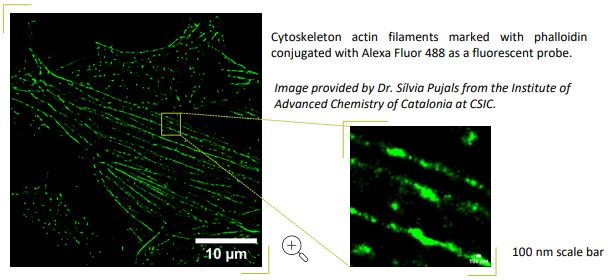
New STORM service at IBEC
A new STORM service is now available for the entire scientific community at the Microscopy Characterization Facility of Institute for Bioengineering of Catalonia (IBEC). The STORM (Stochastic Optical Reconstruction Microscopy) technique is a powerful super-resolution microscopy method that allows researchers to achieve high-resolution images by sequentially activating and localizing photoswitchable fluorophores. It’s particularly useful for visualizing structures at the nanoscale.
IBEC - Microscopy characterization
14/04/2024
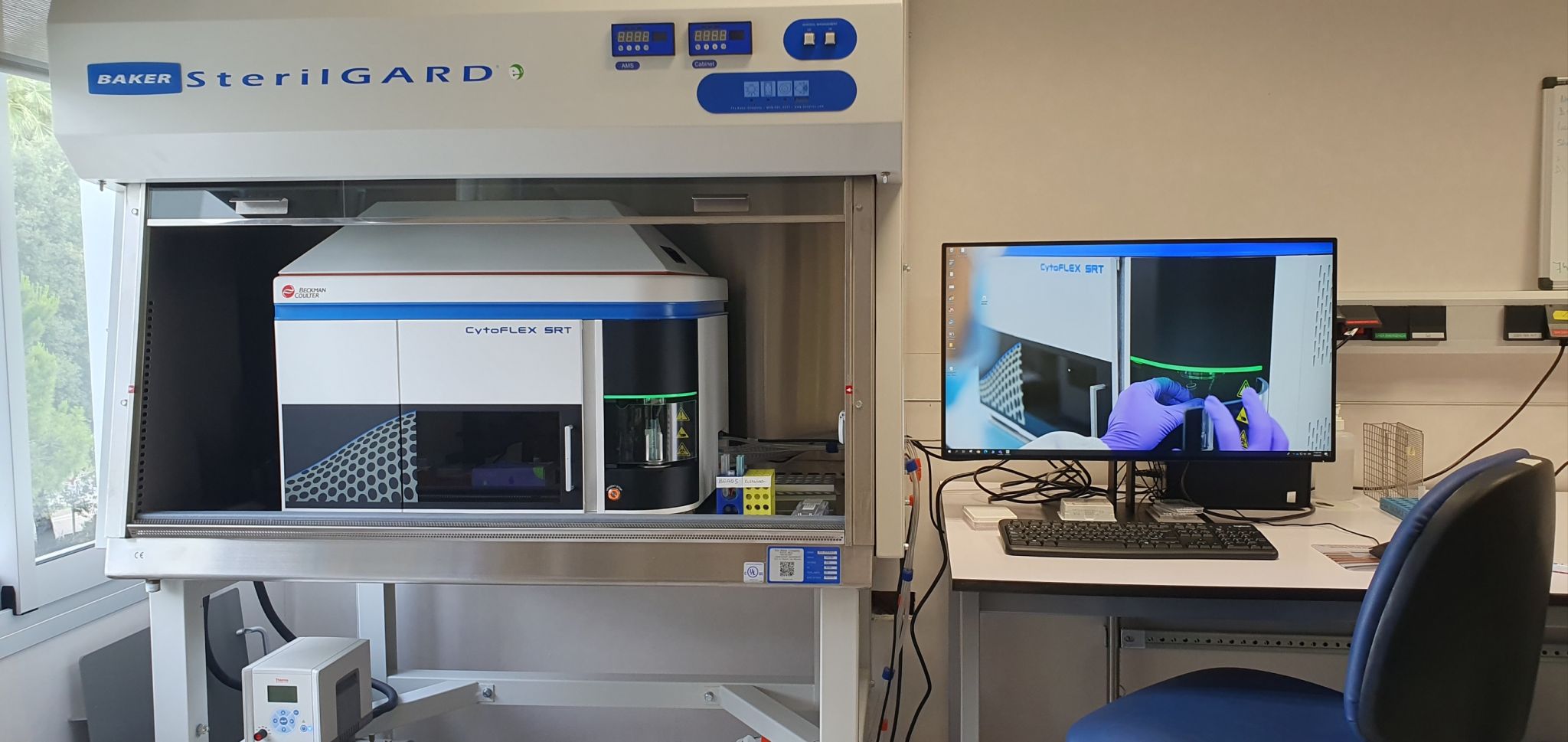
Introducing the new cell sorter for the IDIBELL Flow Cytometry platform:
In March 2023, the Scientific Technical Services of IDIBELL incorporated a new cell sorter into their Flow Cytometry platform. This is the CytoFLEX SRT model from Beckman Coulter, a benchtop device equipped with 4 lasers and 15 fluorescence detectors. In June, the installation was completed with the arrival of the thermostatic bath and the biosafety cabinet type 2. This crucial addition enables the performance of biological assays that require a high level of biosafety, as well as the handling of samples at physiological or cold temperatures for optimal preservation. The arrival of this new cell sorter represents a significant advancement for the scientific community at the Bellvitge campus, improving the quality of results and expanding the available applications.
IDIBELL - Flow cytometry platform
02/02/2024
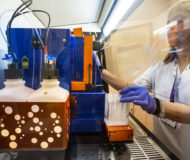
Sant Pau’s Scientific-Technical Services Platforms successfully pass the ISO 9001 audit
Once again, the Scientific-Technical Services Platforms of the Sant Pau Research Institute (PSCT) have successfully passed the ISO 9001 Quality Management System audit, demonstrating the excellence in the provision of their services . The PSCTs are structures that offer high added value services to researchers, both to the research groups of the IR itself and of other institutions. The main objective of PSCTs is to facilitate access to high-level techniques and technologies that might not be accessible to individual groups, as well as to provide services at a reduced cost for the optimization of resources (human resources and equipment) . In addition, PSCTs support researchers with optimized workflows and methods, and advise them on technical and methodological aspects. The PSCTs have a multidisciplinary team with many years of experience in their fields, and they have a knowledge of technology to guarantee the quality of services. PSCTs are characterized by their customer orientation and their commitment to delivery in short times. They also facilitate direct contact between the client and the expert, to resolve any doubt or incident that may arise during the trial. PSCTs can manage the entire process, from the initial sample to obtaining the final results.
IRSantPau - Institut de Recerca Sant Pau
12/01/2024
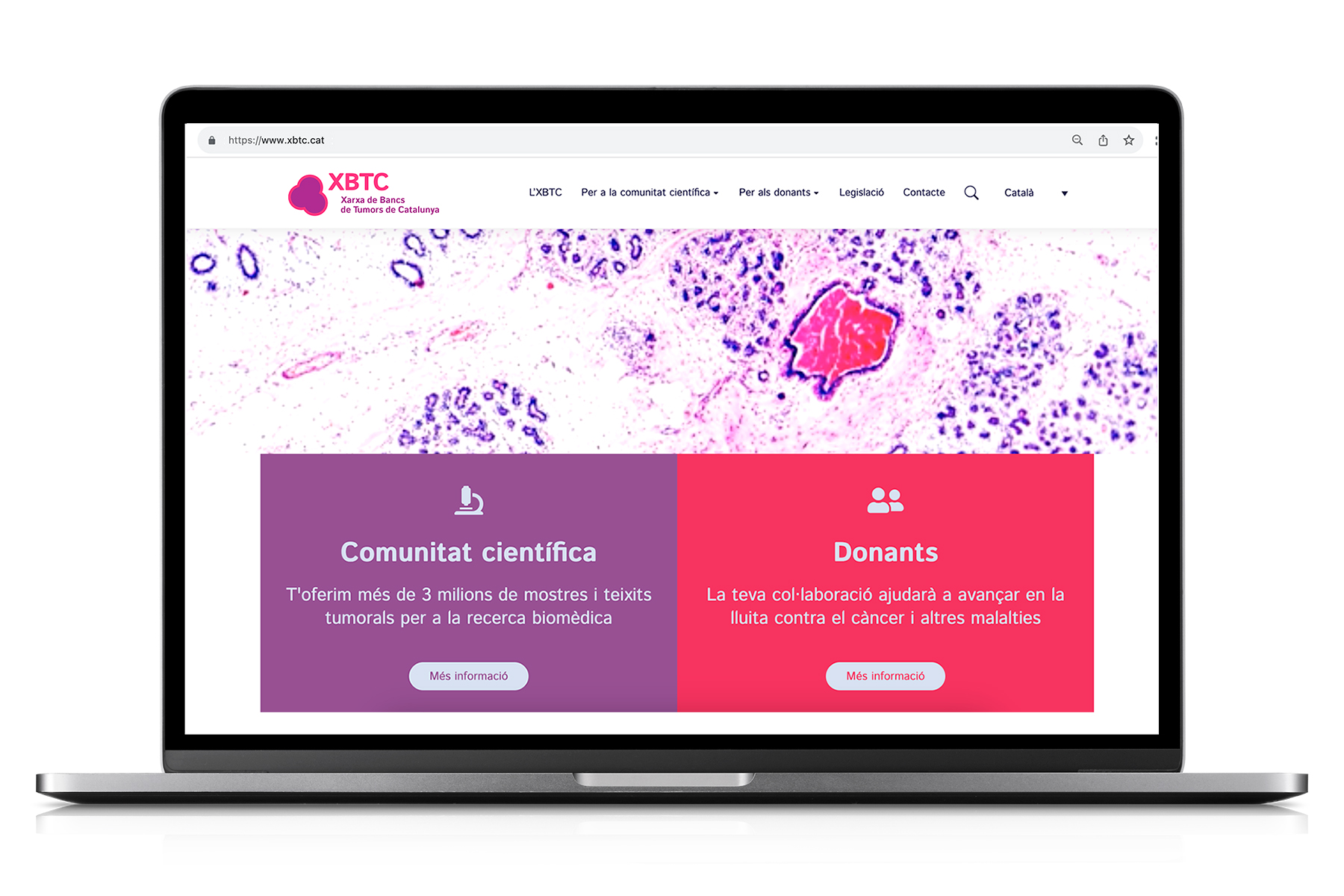
The Network of Tumor Banks of Catalonia, which coordinates IDIBAPS, launches a new corporate identity and website
The Xarxa de Bancs de Tumor de Catalunya (XBTC) has renewed its corporate identity and website to project a more dynamic and local network in the biomedicine and health ecosystem. Tumour banks are resources for research centres where samples of tumour tissue from cancer patients are stored under optimal conditions. Generally, this biological material is obtained from surgical interventions and biopsies. These samples are available for researchers to allow them to carry out their research projects. The Catalan Tumour Bank Network was created in 2007 as an initiative of the Generalitat de Catalunya Cancer Master Plan. Coordinated by IDIBAPS, this network includes tumour banks from eleven Catalan hospitals with the aim of offering a large collection of samples from all pathologies to the scientific community for biomedical research. The hospitals that form part of the network are: Hospital Clínic Barcelona Research Foundation-August Pi i Sunyer Biomedical Research Institute (FRCB-IDIBAPS); Hospital de Tortosa Verge de la Cinta (HTVC), Hospital del Mar Medical Research Institute (IMIM)–Hospital del Mar; Joan XXIII University Hospital; Bellvitge Biomedical Research Institute (IDIBELL)–Bellvitge University Hospital; Girona Biomedical Research Institute (IDIBGI)–Dr. Josep Trueta University Hospital; Germans Trias i Pujol Research Institute (IGTP)-Germans Trias i Pujol University Hospital; Sant Joan de Déu Research Institute (IRSJD)-Hospital Sant Joan de Déu; Sant Pau Research Institute (IIB Sant Pau)-Hospital Santa Creu i Sant Pau; IRBLleida- Arnau de Vilanova University Hospital; Vall d'Hebron Research Institute (VHIR)-Vall d'Hebron University Hospital and Parc Taulí University Hospital. The new website is designed to be of use both to the scientific community of public institutions and industry– to whom the XBTC offers biological and tumour samples, and scientific and technical support– and to donors– who will find the information they need to collaborate and help future patients benefiting from the advances in medicine against cancer and other diseases.
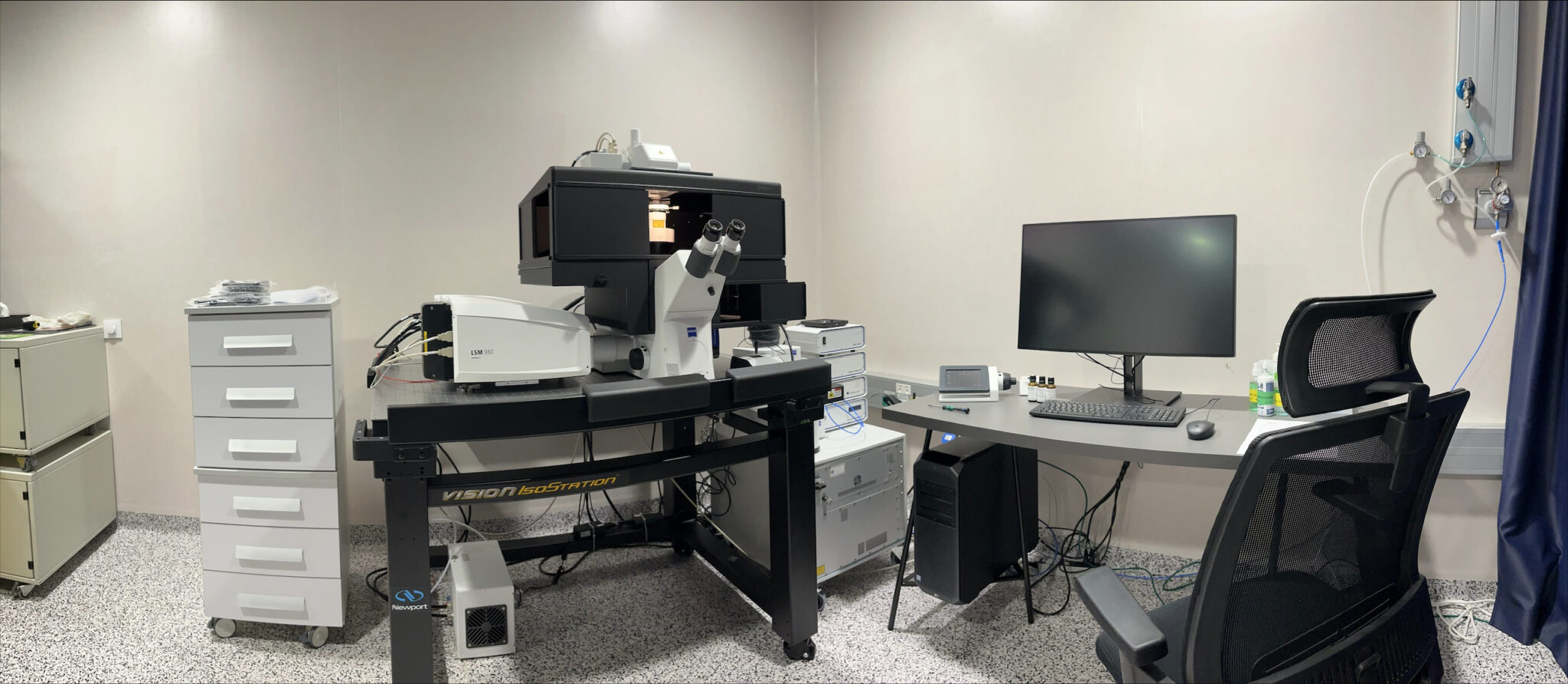
Presentation of the new confocal microscope of the Bioimaging platform
The Bioimaging Platform of the IDIBELL Scientific-technical Services has incorporated a new high-performance equipment, which is the Carl Zeiss LSM980 confocal microscope equipped with the Airyscan2 detector. Acquiring this new equipment has been possible thanks to a grant from the Carlos III Health Institute (IFEQ21-00042) and co-financing from IDIBELL.
IDIBELL - Electron microscopy platform
26/01/2023
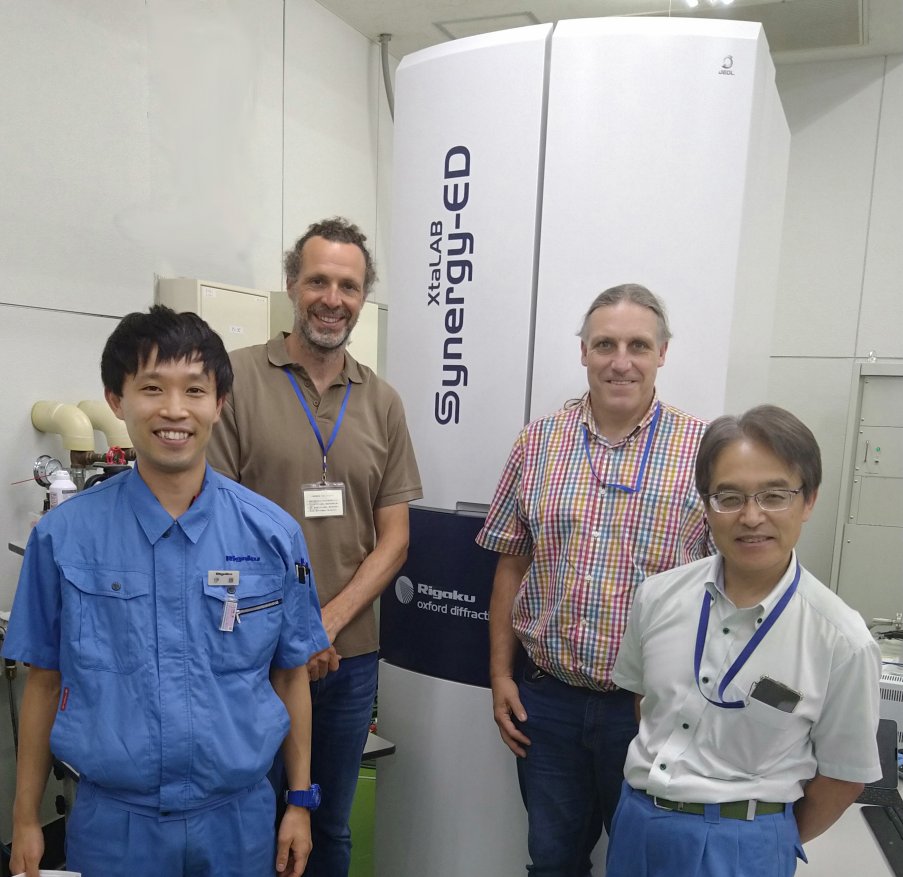
RIGAKU TO INSTALL XTALAB SYNERGY-ED ELECTRON DIFFRACTOMETER OUTSIDE JAPAN AT ICIQ
The Rigaku XtaLAB Synergy-ED is the world’s first turnkey electron diffractometer. Developed by Rigaku and JEOL, it allows crystallographers to push past the limits of single crystal XRD and even synchrotrons, allowing them to elucidate structures from crystals smaller than 50 nm in some cases.
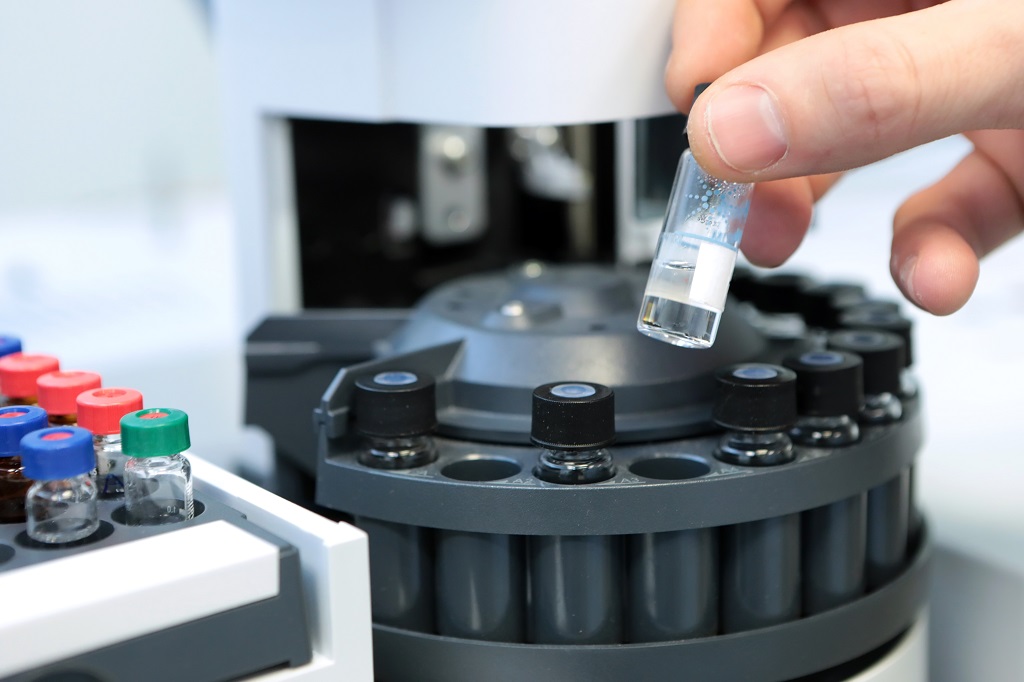
CERCAGINYS gives a second life to disused scientific and technological equipment
In addition to the line of grants for the repair and maintenance of small equipment, CERCAGINYS has opened up the possibility of exchanging machinery between participating centres. "What for some is disused material, for others may still have a useful life or serve as parts," says Roger Cabezas, director of Knowledge Management at CERCA. On the programme's intranet, responsables of the platforms can offer or consult the offers of equipment, and the exchange is articulated through a transfer agreement. The proposal has taken off among the centres and, at present, the transfer of a confocal microscope is being finalised. Work is also underway to exchange two gas chromatographs and a flow cytometer.

